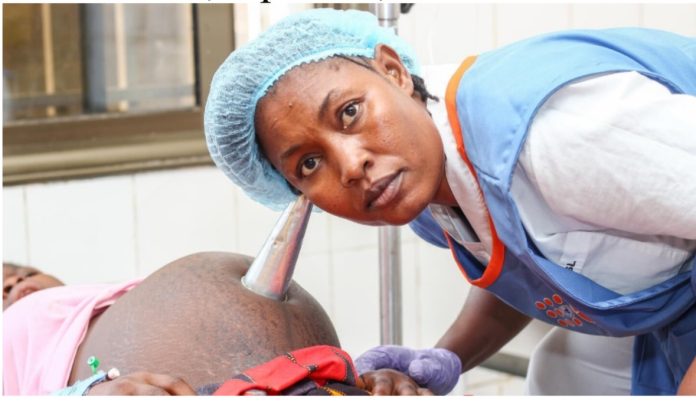AYV News, April 15, 2025
Sierra Leone has reduced the Maternal Mortality ratio by 79% over the last two decades. This is according to the United Nations sexual and reproductive health agency, United Nations Population Fund (UNFPA), confirming that investments and political will can save lives.
The United Nations sexual and reproductive health agency commended the Government of Sierra Leone for its bold leadership and tireless efforts to save women’s lives.
The Agency however warned that these gains are fragile, adding that with massive global funding cuts threatening essential services, “we risk losing this hard-won progress”.
UNFPA assured that it is committed to accompanying the government in stepping up what works: skilled midwives, quality care, and strong political commitment, adding that a Sierra Leone with zero preventable maternal deaths is possible.
UNFPA’s Executive Director, Dr. Natalia Kanem said globally, women’s health during pregnancy and childbirth is better than ever before, adding that this is owing to medical advances, and because more women have control over their reproductive choices and can access respectful, high-quality maternal care.
She said since 2000, the world has seen a remarkable 40 per cent drop in global maternal mortality. For the first time, no country is estimated to have an ‘extremely high’ maternal mortality rate of over 1,000 deaths per 100,000 live births.
Dr. Natalia Kanem said: “Yet these gains mask significant disparities and they remain fragile – and in some of the most vulnerable places, non-existent. Where health systems are weak or protracted crises take root, maternal mortality rates stagnate or even increase. In conflict-affected countries, women are twice as likely – or more – to die from pregnancy and childbirth complications than the global average.
“One encouraging sign is that more births today take place in healthcare facilities. Still, the quality of care varies widely, which can have life-threatening consequences: Research finds that poor-quality care causes half of maternal deaths. Shortages in essential medicines, equipment and skilled personnel plague many health systems”.
She said in many cases, discrimination and inequities tied to location, income, and race or ethnicity deprive women of both sexual and reproductive choices and adequate maternal care, adding that even in the wealthiest countries, which have high healthcare standards on average, rates of maternal mortality are disproportionately higher among marginalized groups.

